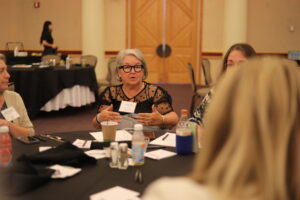
For Sandy Hunt, leaning into youth engagement is the key to community development
People often get involved with community development due to a desire to make their community better. This desire is rooted in bringing
Over the past 13 years, I’ve had the enormous privilege of having a front row seat to West Virginia’s community development field.
In 2012, the WV Community Development Hub was a young organization, founded in 2009 to support the development and growth of the state’s community development field. Our work included many efforts that we continue to this day, including: direct community coaching support to dozens of towns across the state, leadership development for hundreds of local leaders, and convening organizations to build strategies to address long-term challenges that all communities face (dilapidated buildings, access to healthy foods and downtown revitalization).
Throughout the years, in good times and bad, there are a few core lessons I have learned along the way that have always guided our work at The Hub and that serve as pillars of the state’s community development system.
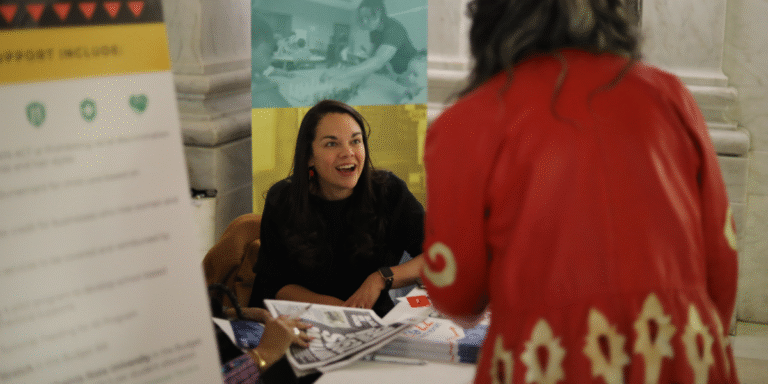
First, the people we need to revitalize our communities are already here.
Traditionally, development strategies were based on a Field of Dreams model: “If we build it, they will come.” If we build the highways, the infrastructure and the sites, a wealthy person or company will come and bring economic revitalization to our towns.
While this model might work in places that have significant economic growth, it’s clear that it’s not the only strategy we can depend on to redevelop communities that are struggling and have been left behind.
What we’ve learned in West Virginia is that we can’t wait for someone to come along and save us – we have to dig in and do the work to save ourselves. And – surprise! – towns all over the state already have the exact people they need to do the work to redevelop their towns.
Our towns are full of people who deeply care about their communities, are invested in its future, and are ready to put in the hard work to build a future of economic growth. These community members often aren’t the wealthiest people in the state, they don’t lead major companies, and they might not even know that they’re doing community development. But when they show up to community meetings, bring ideas for new things they want to start in their towns, and keep showing up year after year putting in the hard work to turn dreams into reality, real locally-driven transformation can and does happen.
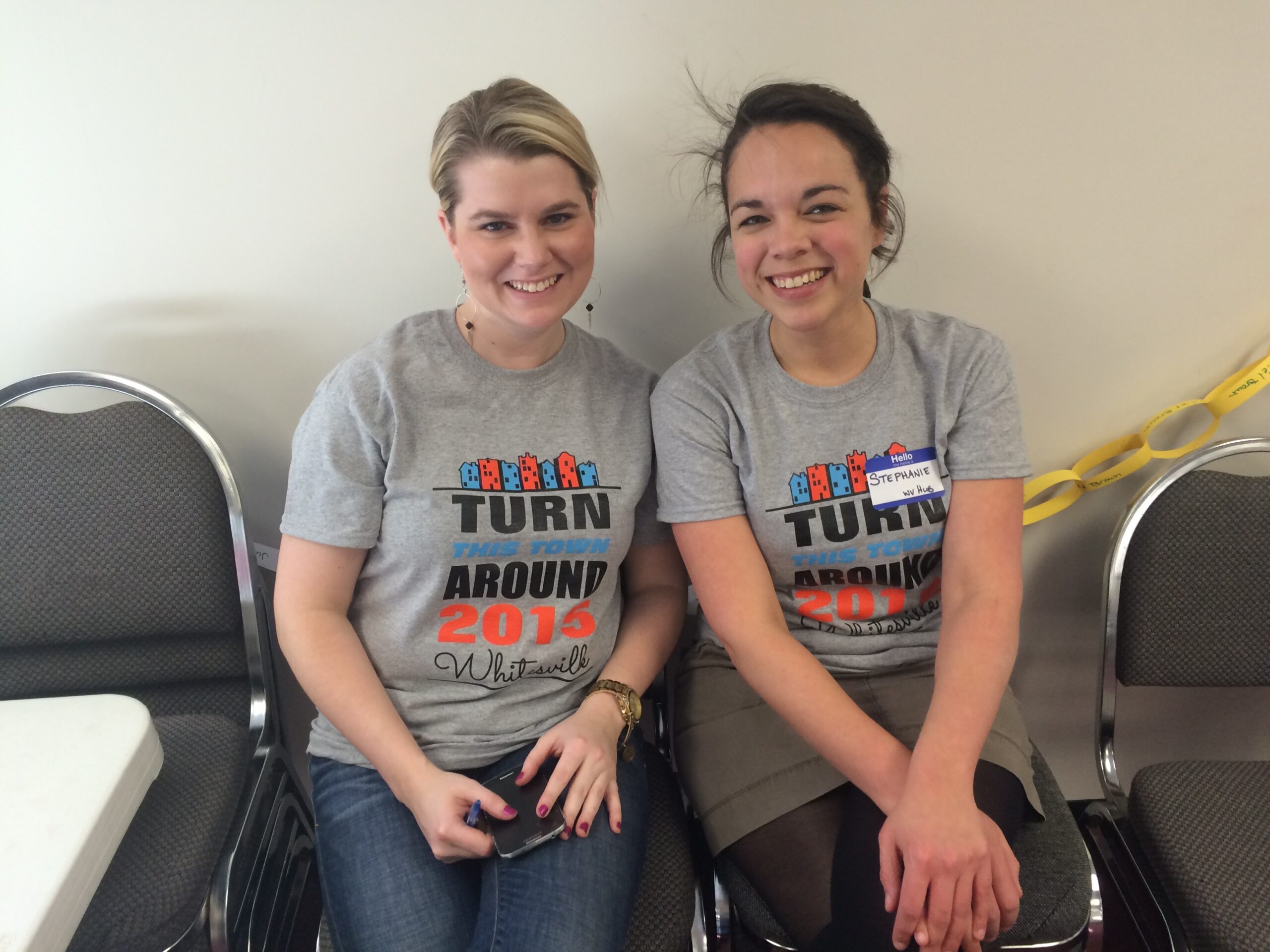
Second, anything is possible when people work together.
So, what makes the difference between towns that want to get things done and the places that are actually making transformational change? It’s the power of people working together – the power of relationships, the power of teams, and the power of trust.
Over and over, we have seen that what separates places that succeed from places that languish is over-reliance on a single person to be the transformational force for a community.
Sometimes it’s the “lone wolf” who can’t or refuses to work with other people; the person who wants to do it all themselves and believes it’s “their way or the highway.” Sometimes it’s the amazing local leader who runs a business, serves on council, is volunteered to lead every project and is the one everyone expects will be coordinating all the local events. Sometimes it’s just a matter of factions in the town where instead of a large group working together: there are three or four small groups trying to do the same thing and refusing to work together because of things that happened decades ago.
It doesn’t matter why someone is off on their own, what matters is that it’s never going to work if there is not a team of people making the effort to learn how to work together for the long haul. When a group of community members comes together, invests in building a strong team and does the hard work of building trust in each other, they are planting the seeds for change that they cannot even imagine when they first start working together.
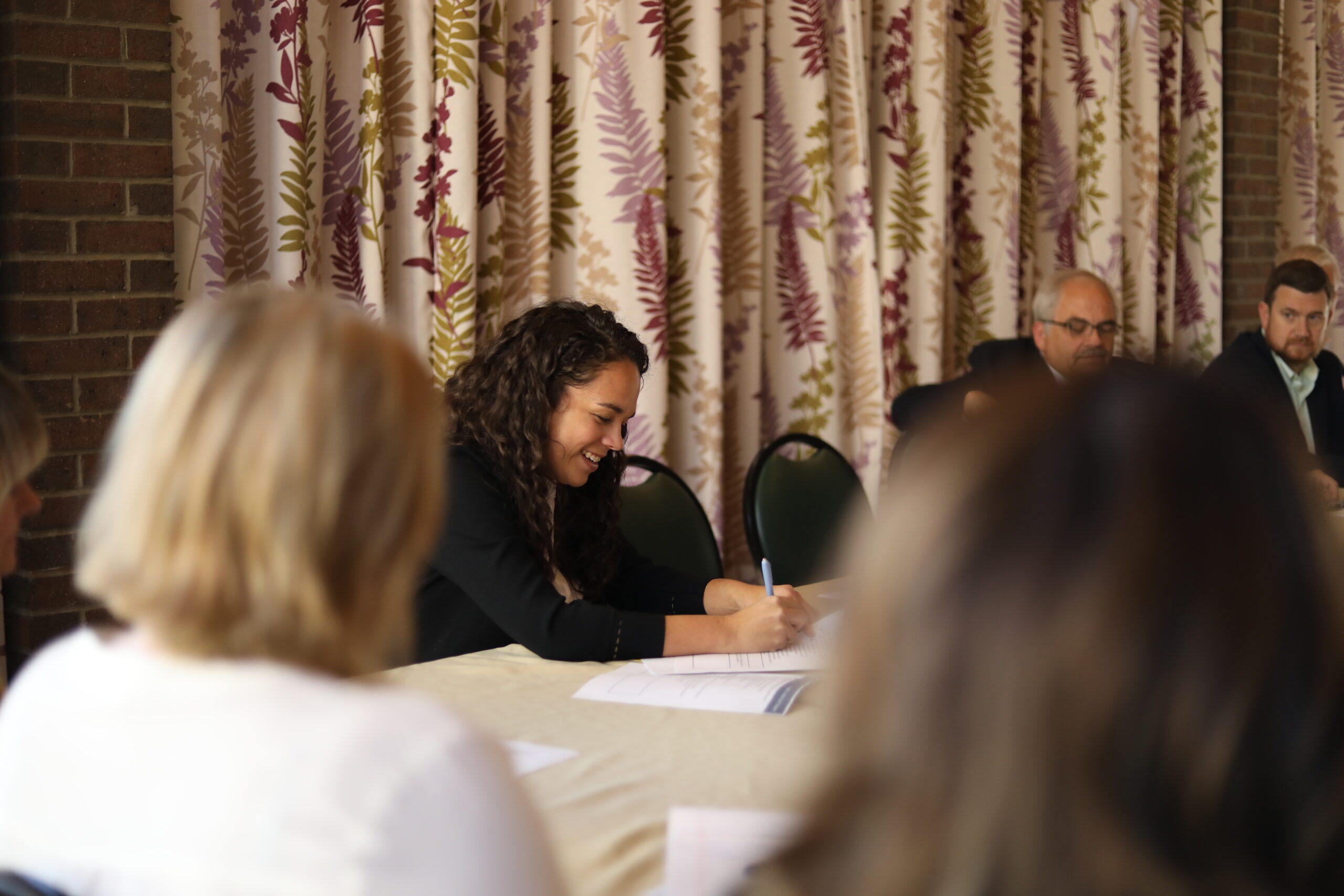
Which brings us to the third lesson, the thing we say over and over again at The Hub: Community-driven development is built on trust.
Trust is the magic ingredient that makes community-driven transformation possible. When we talk about trust at The Hub, it is deeper than a begrudging agreement to let others do what they want to do. Building trust means moving from a transactional relationship (I’ll help you now so that you’ll help me in the future) to a transformational relationship (I know you, I believe in you, and I know that you know and believe in me).
Trust building is started by setting agreements, making commitments and following through on them. It’s built through honesty, taking accountability for mistakes, and giving grace to others. Trust building requires an awareness of your own self – your strengths and your limitations – and a constant interest in knowing others just as deeply. And we know that trust is earned by the thimbleful and lost by the bucketful.
The strongest trust is built through working together and testing the limits of the relationships – both individually and across the team. When something fails, a challenge arises or a conflict occurs, the teams and leaders that are invested in building trust understand that these are opportunities to learn together, deepen a relationship and move forward.
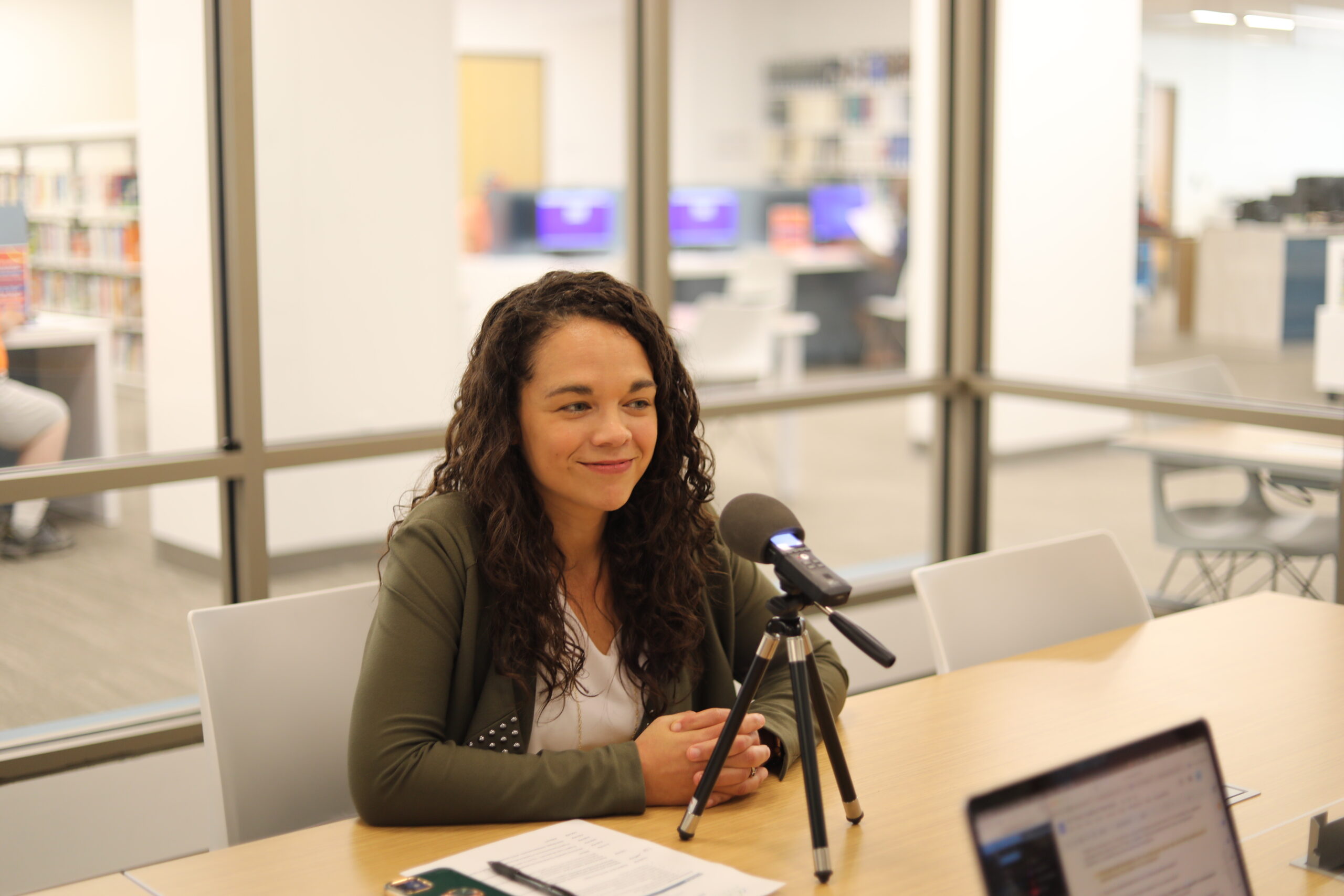
The fourth lesson of community development is one that has been repeated often over the past dozen years as West Virginia has faced many challenges. There is no silver bullet to community development.
Just like we often wish that there was some company or person that could save us, we also wish that “if we did this one thing, it would solve all of our problems.”
But rural community development is far too complex to be solved by a single strategy. We are doing this work at a time when there has been 50+ years of decline and disinvestment in our communities. The ripple effects of generations of struggle reaches far beyond a single issue, place or solution.
Rather than looking for a single solution for community development, we must work together to build an understanding of how the system works together and what interventions that, when woven together, can build the web of transformation for our towns.
At The Hub, we are constantly open to new opportunities, partnerships and wild ideas that can build more strands in the web of local development. From local art to farmers markets to building redevelopment to recreation and tourism – everything works together to make a stronger town. Our greatest weakness is when we get siloed away from each other and aren’t thinking about how different strategies can work together.
One of our favorite activities in our community coaching programs is to host a big meeting, let everyone bring their idea – large or small – and then have participants vote with their feet for the ideas they want to work on as project teams.
When the door is wide open to all ideas, remarkable projects occur that are not on their own the “single bullet” to solve a community’s problem, but can start to build the steps to long-term transformation and redevelopment.
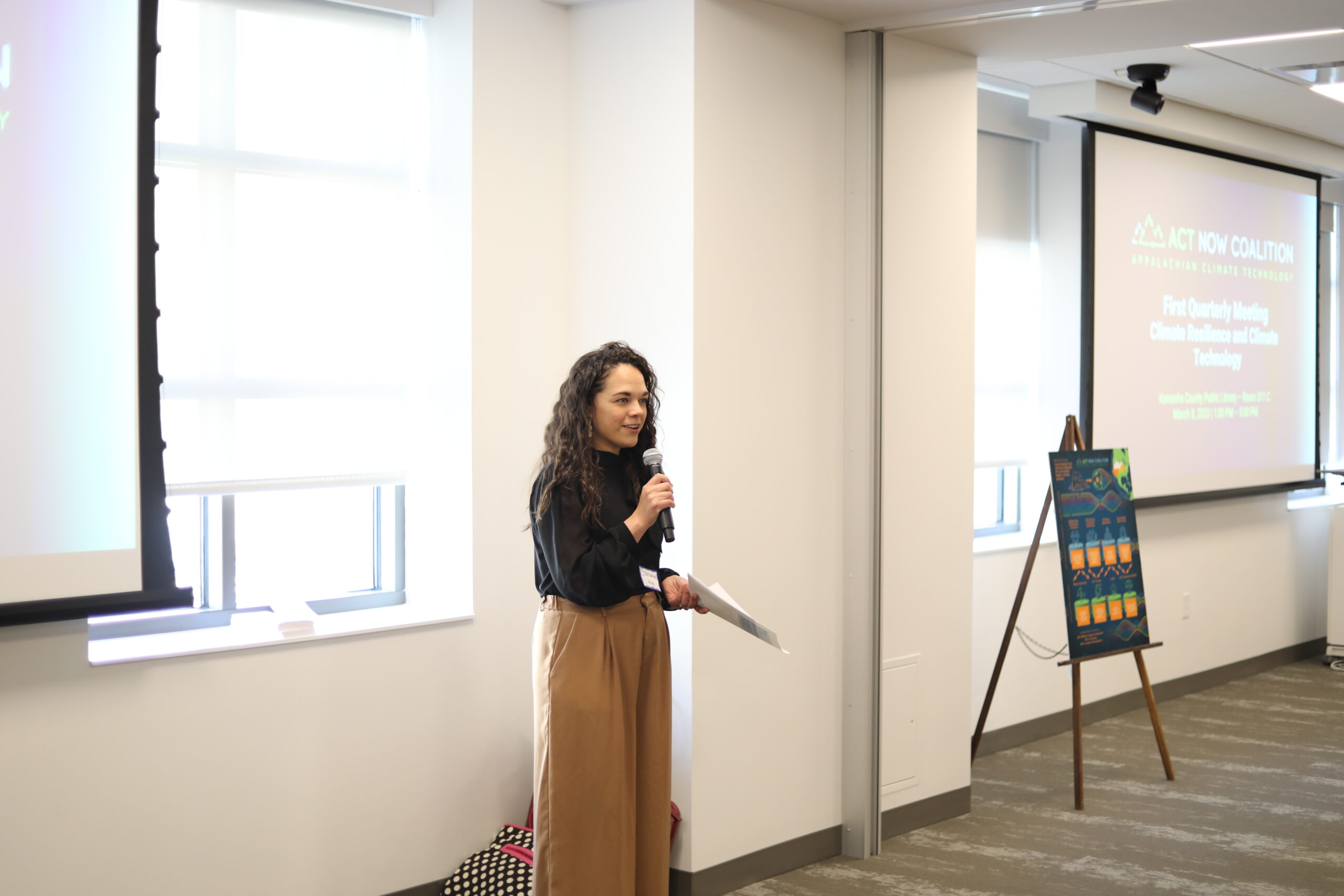
Finally, everything starts and ends with leadership development.
We know that West Virginia communities are already full of the people who know what is best for their communities, when they work together they can make dreams come true, that working together requires real, deep trust building, and that the best solution is the one that includes an array of strategies and not a single approach. But this all fizzles out if those people, teams and strategies are not supported by long-term leadership development.
When we invest in leadership development, we are providing the tools to community members to transform their understanding of the potential they have, and the potential that everyone who is working with them has.
As a first step, investing in leadership development means providing tools, training and support to individuals to help them build on their strengths, address their weaknesses and grow their capacity. But transformational leadership development requires years of work – it’s a long-term relationship that goes beyond a single program or project.
The most inspiring part of the work I’ve done at The Hub has been working alongside a constantly growing group of local leaders for over ten years – seeing the same people keep showing up to build their skills and watching them bring new people into the room each year who also want to build their own leadership. It’s been watching a generation of change makers emerge, grow, and reach out to build the next generation behind them.
I am enormously hopeful about the future of West Virginia and the power of community development in our state.
None of these lessons are difficult to implement but all of them require time, continuous commitment and a belief in the power we have when we work together. And based on the change I’ve seen in small towns across the state over the last dozen years, I know that anything is possible when we do this work together.

People often get involved with community development due to a desire to make their community better. This desire is rooted in bringing
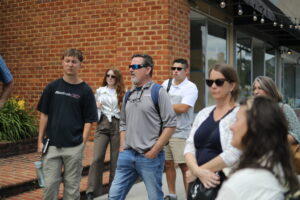
Community development is a group effort, and knowledge sharing is crucial in moving projects forward. Peter Buttler, a professor and extension specialist
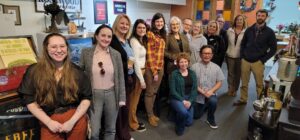
Residents in Richwood have worked hard over the years to revitalize their town. Their tireless work to make Richwood a destination for
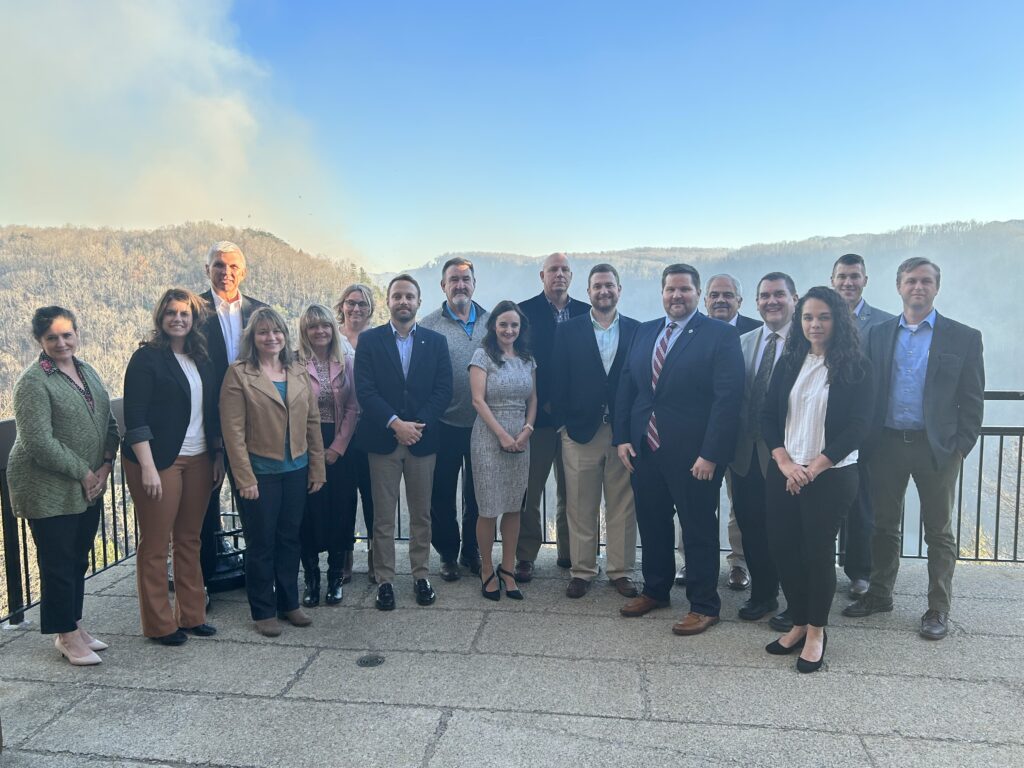
Our work is made possible thanks to incredible partnerships with other community development organizations across the state. From local economic development authorities (EDAs) to state level nonprofits working to uplift communities, all of our partners are crucial in making West Virginia the best it can possibly be by working together.
One partner that made our work truly profound this year is Coalfield Development. For years, Coalfield Development has worked to rebuild Appalachian communities by inspiring the courage to grow, activating the creativity to innovate, and cultivating communities of opportunity in central Appalachia.
We are proud to be part of Coalfield Development’s ACT Now Coalition, a broad network of organizations working hand-in-hand to uplift communities throughout Southern West Virginia. The ACT Now Coalition is infusing more than $63 million into programs to help communities using business development, building revitalization, and so much more.
The Hub is leading the Community and Business Resilience Initiative as part of the larger ACT Now Coalition to bring other partners with us to build up community and business resilience in the Coalition’s footprint.
“For decades, we’ve known the economy of southern West Virginia needs diversification. Some progress has been made on this goal, but not nearly enough,” Brandon Dennison, CEO of Coalfield Development, said about the ACT Now Coalition. “ACT Now constitutes a tangible opportunity to take a major leap forward in this generational challenge to become a vibrant, growing, diversified economy. In the wake of continued coal-job losses, nothing could be more important for our region.”
Our partnership with Coalfield Development is giving us a chance to take our work to new communities and to build upon our years of experience. Working alongside Coalfield Development in this large undertaking to bring $63.8 million to communities in Southern West Virginia is validation that the work happening to uplift West Virginia communities continues to grow.
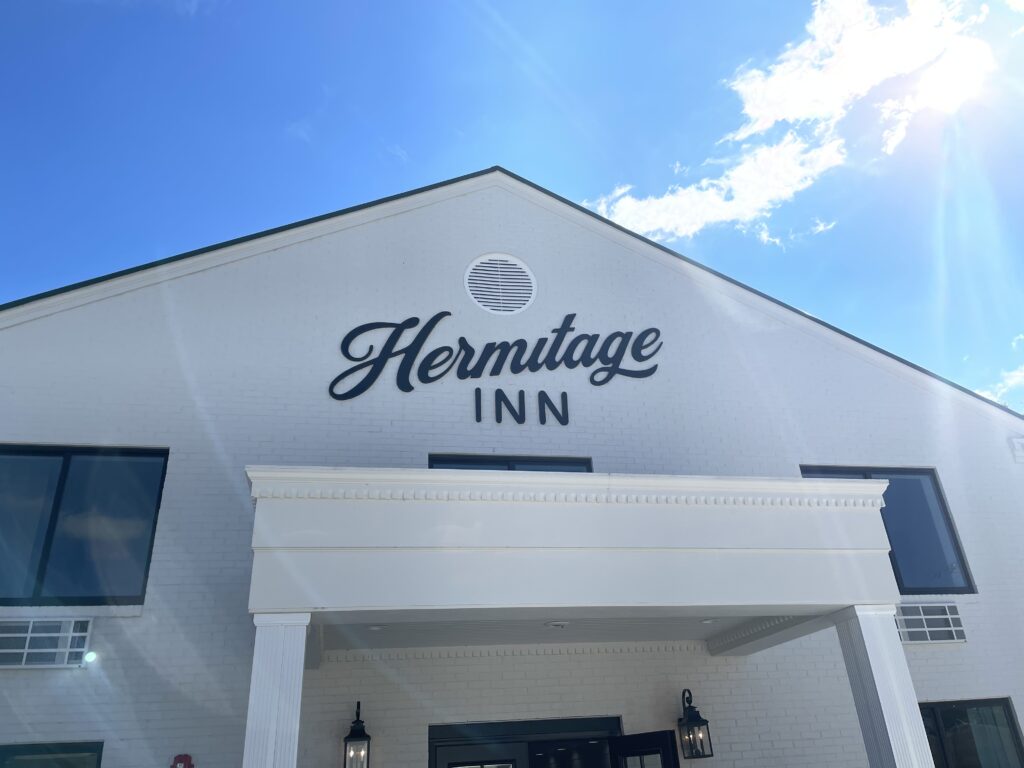
The Hub works alongside communities across West Virginia coaching community teams as they come together to make transformative changes in their towns. In 2022, one town stands out for its continued work and unwavering commitment to making its community a place where people want to live, work, play, and visit.
Petersburg, located in Grant County at the northernmost point of the Mon Forest, is filled with community members who want to make their town a destination. Not only have businesses opened, and stayed open, the town has transformed the way they present to the world through rebranding and outdoor recreational development.
As part of the HubCAP IV program, Petersburg utilized its technical assistance to push forward with projects to bring transformative change to its community. Part of the work Petersburg worked towards was creating plans to pave a hike and bike trail that runs along the Petersburg dike. The proposed trail will run approximately three miles along the Petersburg dike and will include multiple entrances for walkers and bikers. The group secured a $25,000 grant from Senator Hamilton, which was matched locally by the City of Petersburg, the County Commission, and the Board of Education, each adding an equal share to bring the total to $50,000.
This year, Petersburg witnessed a major upgrade to one of the town’s most iconic and historic structures: The Hermitage Inn. The hotel, which dates back to 1841, has been renovated and once again welcomes guests to stay the night and have a nice dinner in the restaurant.
The Hermitage Inn is the first project initiated and completed as part of the Downtown Appalachia: Revitalizing Recreational Economies (DARRE) program. Seeing the old hotel returned to its majesty has been an incredible development for Petersburg adding another jewel to the downtown area.
Seeing Hub communities come together to create transformative change thrills us. Community members are the subject matter experts on what their towns need. Our commitment to accompaniment and walking alongside communities as they do the hard work guides us in our work. Celebrating their victories with them gives us a moment to uplift those making the work happen.
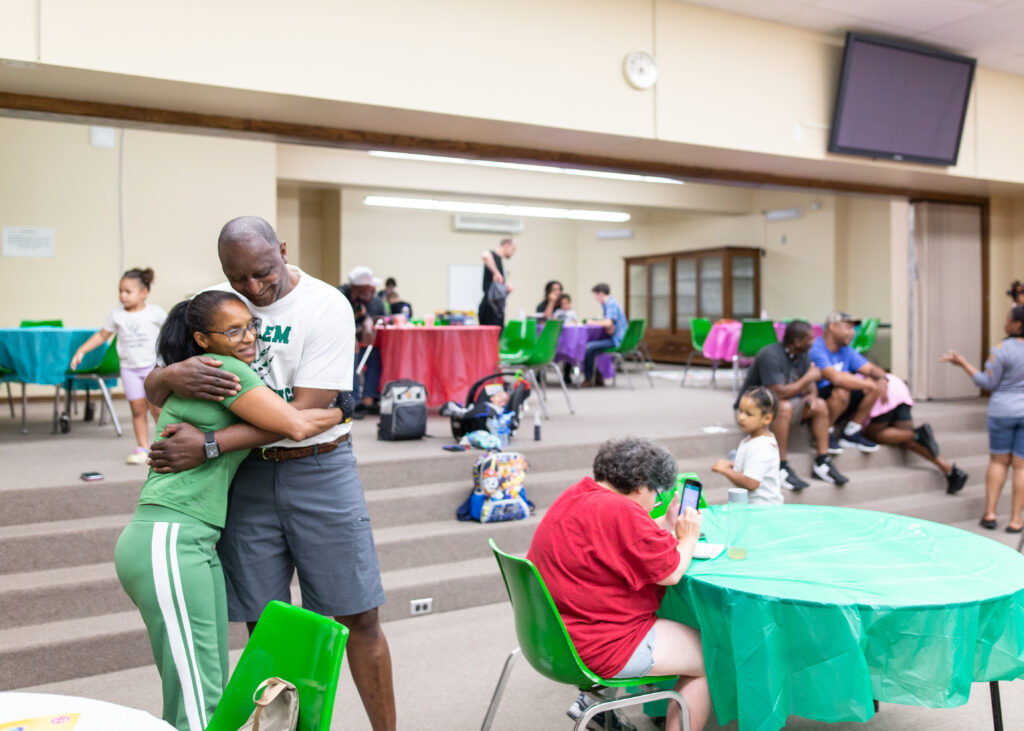
Since 2018, The Hub has been working diligently to bring Diversity, Equity, and Inclusion into our work. For years, the organization has been working internally to expand on one of our core values: “We believe diversity creates strength.”
We believe that now is a time when we must work from the ground up to commit to long-term efforts to build power through leadership development, programmatic strategies, and partnerships that commit to building power and advancing racial equity.
Looking back at our organizational history, we acknowledge that our work in rural communities with populations of less than 15,000 has not reached a diverse cross-section of people in West Virginia. Because of this, we began to ask, “Who isn’t here?” when examining our involvement in communities. The social unrest in 2020 led us to examine our role in white supremacy, ableism, classism, and gender discrimination, and the ways we have perpetuated unjust systems in our communities and across West Virginia.
Since 2020, our equity journey has included a staff racial equity learning series, making internal commitments to increasing our hiring and retainment of diverse staff including creating full-time Racial Equity Fellowship and VISTA positions, committing to increased coaching for rural communities of color across the state, and tackling the inherent challenges of advancing equity across the community development field within a highly rural, majority white state where Black and brown leadership has been historically marginalized and under-invested.
Our belief in the power of local people to see the value and the potential of their place, and of each other, is at the core of our belief in the potential we have to build power in West Virginia to advance racial equity, inclusion, and accessibility while disrupting systems that have historically excluded some communities.
We are committed to engaging in conversations to uplift communities and leaders of color to move from talk to action on why race matters in West Virginia as we work to disrupt these systems. We will support investment in Black-led organizations and rural Black leadership. And we are committed to driving public and private investments into these spaces, both organizational and geographic.
A core team led by Unleash Tygart, Inc participated in Opportunity Appalachia, receiving technical assistance to support a community development project located in an Opportunity Zone.
Core teams led by Thundercloud, Inc. and the City of Huntington participated in Opportunity Appalachia, receiving technical assistance to support community development projects located in Opportunity Zones.
A core team led by Crawford Holdings, LLC participated in Opportunity Appalachia, receiving technical assistance to support a community development project located in an Opportunity Zone.
Residents participated in round 4 of The Hub’s capstone Communities of Achievement program with a focus on building local recreational economies.
Residents participated in round 4 of The Hub’s capstone Communities of Achievement program with a focus on building local recreational economies.
Residents participated in round 4 of The Hub’s capstone Communities of Achievement program with a focus on building local recreational economies.
Residents participated in round 4 of The Hub’s capstone Communities of Achievement program with a focus on building local recreational economies.
Residents participated in round 4 of The Hub’s capstone Communities of Achievement program with a focus on building local recreational economies.
A core team led by Woodlands Development Group also participated in Opportunity Appalachia, receiving technical assistance to support a community development project located in an Opportunity Zone.
Residents participated in round 4 of The Hub’s capstone Communities of Achievement program with a focus on building local recreational economies. Read their community case study.
Residents participated in the Blueprint Communities* program to engage their neighbors and co-create strategic plans for their future.
Residents participated in the Blueprint Communities* program to engage their neighbors and co-create strategic plans for their future. Read their community case study.
Residents participated in the Blueprint Communities* program to engage their neighbors and co-create strategic plans for their future. Watch their community documentary.
Residents participated in the Blueprint Communities* program to engage their neighbors and co-create strategic plans for their future. Read their community case study.
Residents participated in the Blueprint Communities* program to engage their neighbors and co-create strategic plans for their future.
Residents participated in the Blueprint Communities* program to engage their neighbors and co-create strategic plans for their future.
Residents participated in the Cultivate WV program to kickstart community and economy building. Read their community case study.
Residents participated in the Cultivate WV program to kickstart community and economy building. Read their community case study.
It has been a year of abundant opportunities and partnerships across the state, and a year that has pushed all of us to work harder, faster, and smarter – together.
At The Hub, we say that “the work works when you put in the work.” This means that our approach to community-based development, and individual leadership development, really does transform local communities, especially when we all work together for the same goal, and stay committed to working together for the long haul.
In 2023, we continued to be amazed at the local leadership, drive and innovation we saw in communities throughout the state that are building locally-driven development from the ground up. Our network of community leaders, partners and opportunities keeps growing and shows no signs of slowing in 2024!
We extend our deepest gratitude to everyone for being part of the larger Hub community as we reflect on this year’s deep impact in West Virginia communities through our work. We are thrilled to have champions who believe in our mission that every community in West Virginia can achieve economic growth when they are supported with the tools and training they need to lead and spark positive change.
We believe strongly in the fact that putting in the work yourself to improve your neighborhood, your town, and our state is where true transformational change happens. With strategic partners and thought leaders like you in the work with us, we continue to be able to walk alongside community teams as they do the work to uplift their communities.
Thank you to all of the community teams and leaders who are brave enough to keep showing up every day, and putting in thousands of hours of volunteer time to support your communities and the entire state. Your determination in the face of difficult work and far-off successes is something to applaud yourself for – and to celebrate.
Whether you’re volunteering on the ground in your community, sharing our stories of hope with your friends and neighbors, or attending a virtual event with The Hub, your participation in our work is what keeps it going. Thank you for all your work and support this past year, and we are excited to continue in the work with you in 2024!
In Continued Accompaniment,